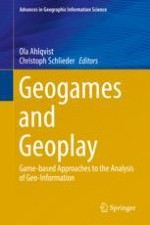2018 | OriginalPaper | Buchkapitel
10. Structural Gamification of a University GIS Course
verfasst von : Michael N. DeMers
Erschienen in: Geogames and Geoplay
Aktivieren Sie unsere intelligente Suche, um passende Fachinhalte oder Patente zu finden.
Wählen Sie Textabschnitte aus um mit Künstlicher Intelligenz passenden Patente zu finden. powered by
Markieren Sie Textabschnitte, um KI-gestützt weitere passende Inhalte zu finden. powered by
